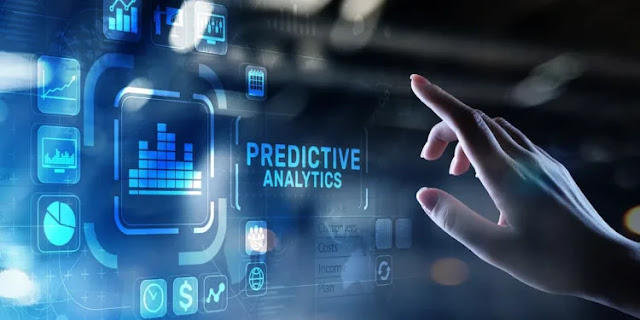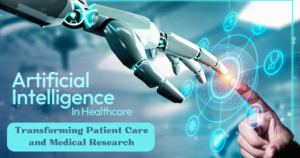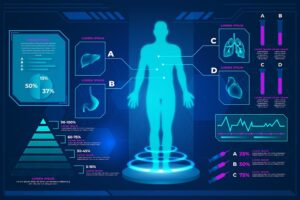The integration of Artificial Intelligence (AI) into healthcare has been a game-changer, promising to vastly improve various aspects of patient care and medical research. With the capability to analyze large volumes of data quickly and with high precision, AI technologies are enhancing diagnostic accuracies, optimizing treatment plans, and personalizing patient care like never before. This article explores the significant AI-driven advancements in healthcare, outlining their benefits and the potential they hold for the future of medicine.
AI in Diagnostic Procedures
One of the most significant contributions of AI in healthcare is its role in improving diagnostic procedures. Machine learning algorithms, a subset of AI, can analyze complex medical images such as X-rays, MRIs, and CT scans with a level of precision that matches or even surpasses human experts. Additionally, AI systems equipped with deep learning capabilities can identify patterns in data that might be imperceptible to humans, leading to early detection of conditions such as cancer, neurological diseases, and cardiovascular issues.
Enhancing Patient Care Through Predictive Analytics
Predictive analytics powered by AI is another area revolutionizing patient care. By leveraging historical health data, AI models can predict patient outcomes, enabling healthcare providers to offer personalized care plans. This not only improves the quality of care but also significantly reduces costs by preventing hospital readmissions and identifying the most effective treatments for individual patients.
The Rise of Telemedicine and AI
The global pandemic has underscored the value of telemedicine, with AI playing a pivotal role in its expansion. AI-driven chatbots and virtual health assistants provide 24/7 support to patients, guiding them through symptom checks and offering medical advice. For chronic conditions, AI-powered monitoring tools enable remote patient monitoring, ensuring continuous care without the need for physical hospital visits.
Personalized Medicine and AI
Personalized medicine is another area where AI is making a significant impact. By analyzing vast amounts of genetic data, AI algorithms can help in designing tailor-made treatment plans that are highly effective for individual patients. This approach not only enhances treatment outcomes but also minimizes the risk of side effects associated with standard one-size-fits-all treatments.
AI in Drug Discovery and Development
The traditional drug discovery process is both time-consuming and costly. AI technologies are streamlining this process by rapidly analyzing the potential of billions of chemical compounds, predicting their success as new medications. This not only accelerates the pace of discovery but also significantly reduces the development costs, making new treatments more accessible.
Challenges and Ethical Considerations
While AI-driven advancements in healthcare offer promising benefits, they also come with challenges and ethical considerations. Issues such as data privacy, security, and the need for robust frameworks to ensure the ethical use of AI are critical concerns that need addressing. Furthermore, the success of AI in healthcare relies on the availability of high-quality data, emphasizing the need for standardized data collection and sharing practices.
Conclusion
AI-driven advancements in healthcare are transforming nearly every aspect of patient care and medical research. From improving diagnostic accuracy to personalized medicine and beyond, the potential of AI in healthcare is immense. However, as we embrace these technologies, it is crucial to address the accompanying challenges and ethical concerns to fully realize the benefits of AI in improving health outcomes for people around the globe.






